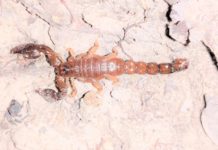There are several global initiatives underway to tackle the amphibian crisis led by the Amphibian Conservation Action Plan (ACAP), that was developed through the IUCN Amphibian Specialist Group. The ACAP establishes a global framework within which organisations can respond. The plan prioritises efforts expand our understanding of the causes of declines; develop and run long-term conservation programmes; be able to respond to emergencies and immediate crises and continue to the changing amphibian diversity.
The Amphibian Ark was established as to implement the ex situ components of the Action Plan. The initiative was established by the World Association of Zoos and Aquariums (WAZA), the IUCN/SSC Conservation Breeding Specialist Group (CBSG), and the IUCN/SSC Amphibian Specialist Group (ASG). The goal is to focus on saving those species that cannot be safeguarded in the wild and require captive assurance and breeding to ensure that they do not go extinct in the short term.
There are many projects underway around the world to understand and control chytridiomycosis, and to save some of the many threatened amphibians. The Mountain Chicken Recovery Programme is an example of just such a project that is tackling the loss of an iconic and biologically valuable species through a range of responses from research to field study and captive breeding. In this way it is contributing to the objectives of both the ACAP and Amphibian Ark. The most effective responses to the amphibian crisis will come through the sharing of experience and knowledge generated within the many initiatives such as ours and the links formed between conservation efforts in the field and research in the lab.
Goto REPORTS to find relavent documents on the crisis and the global responses.






